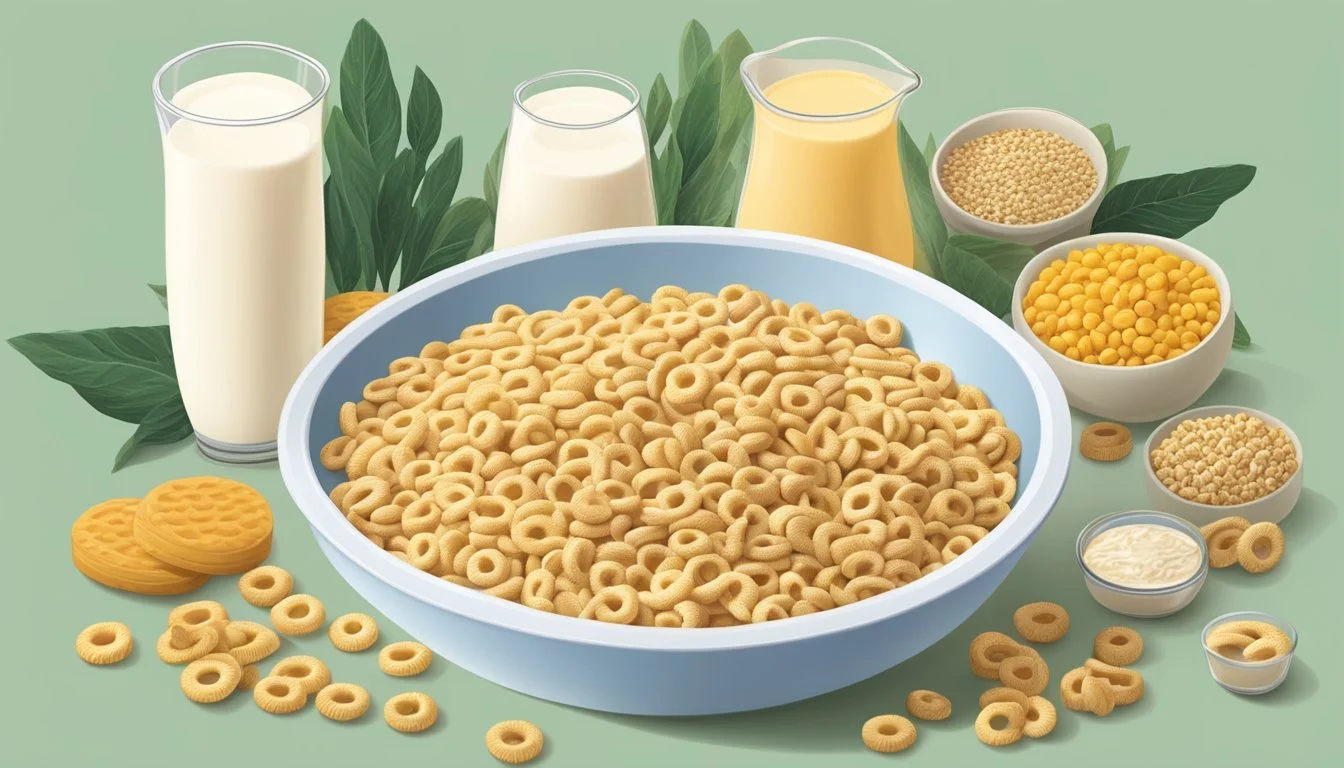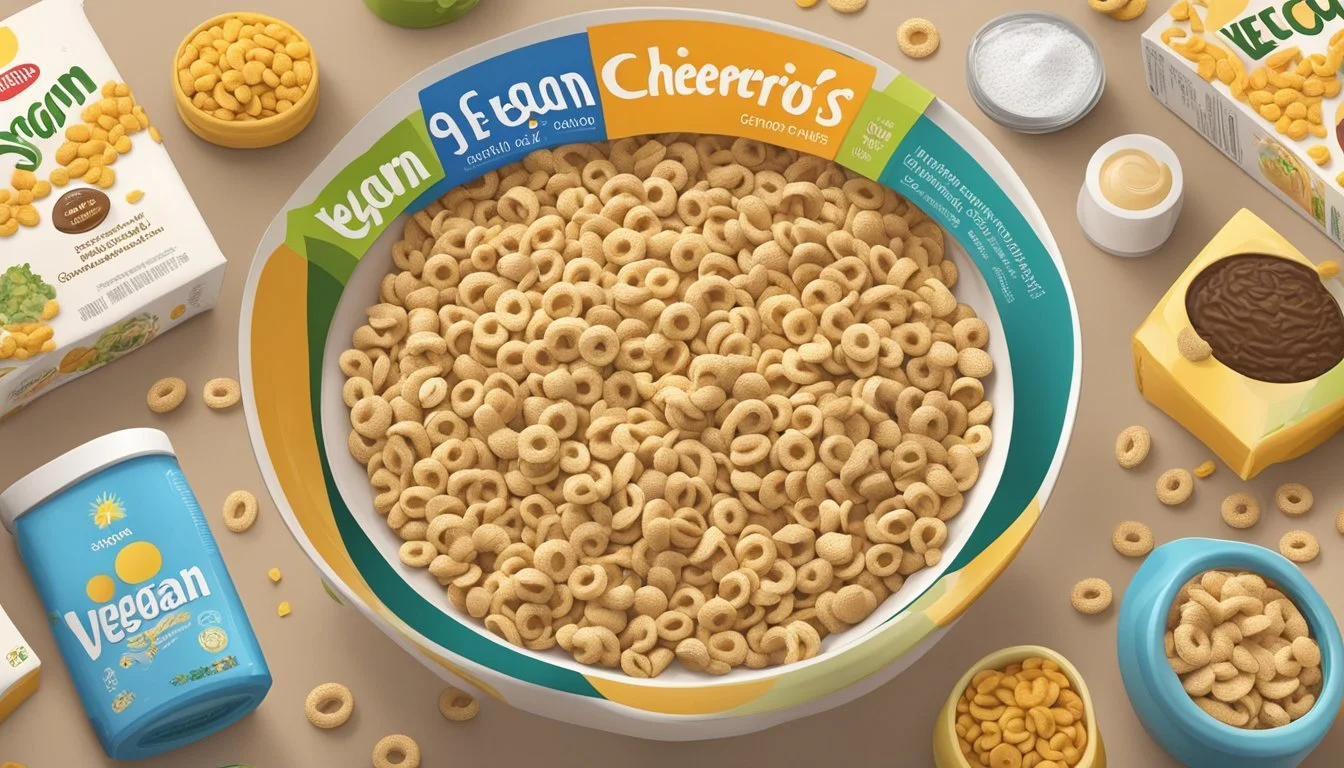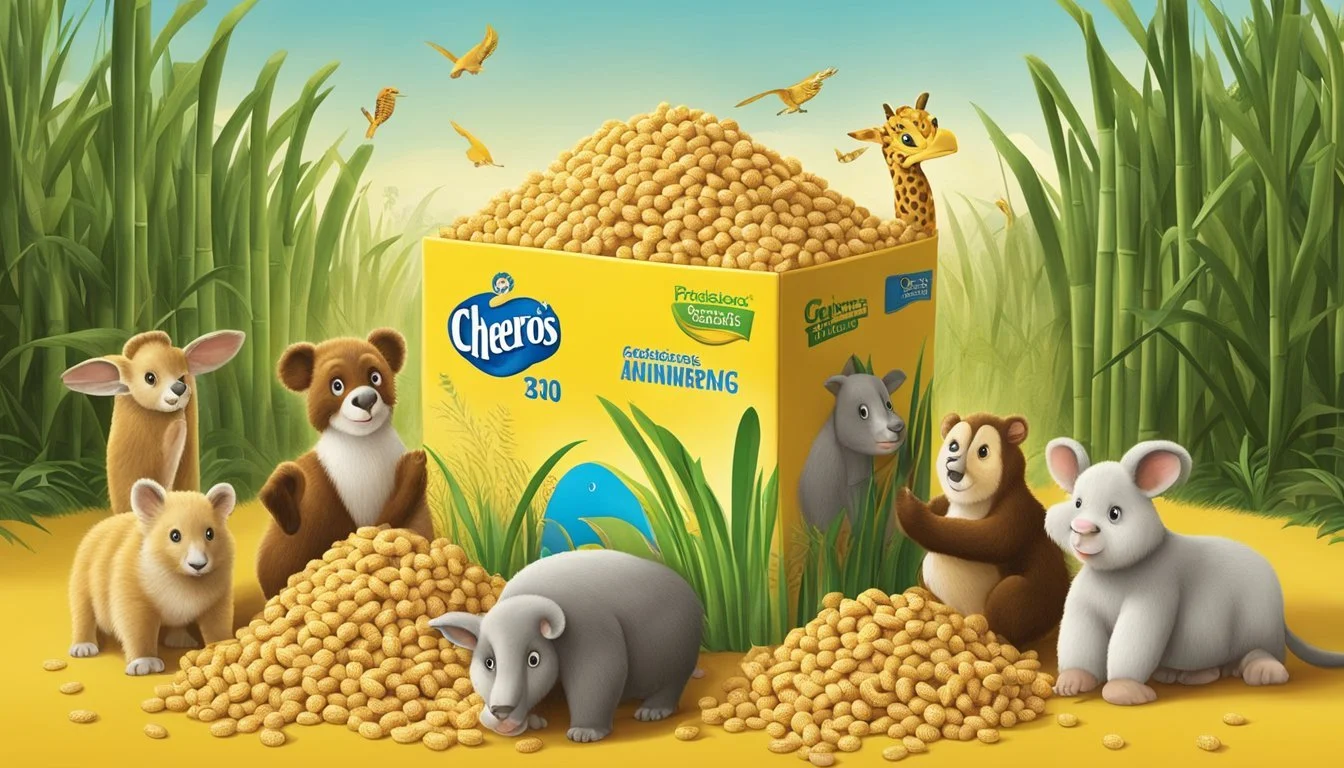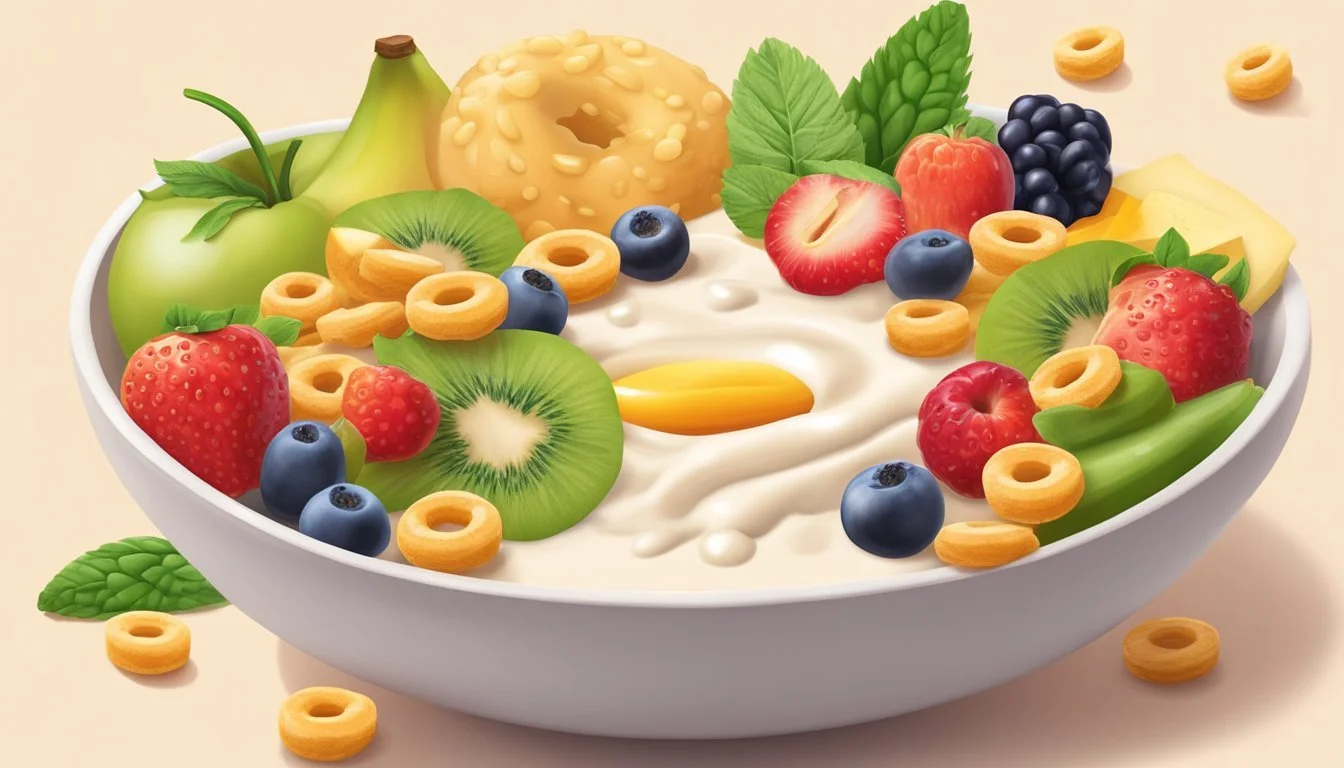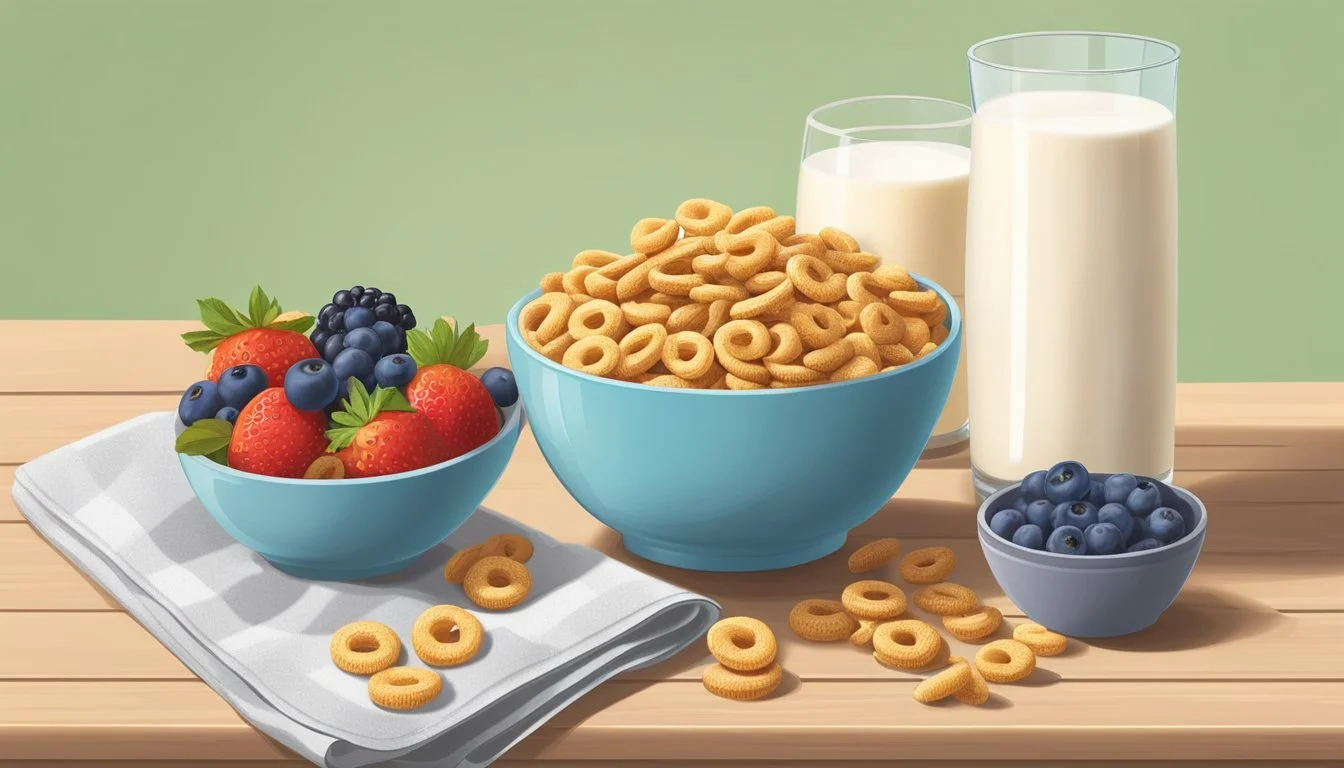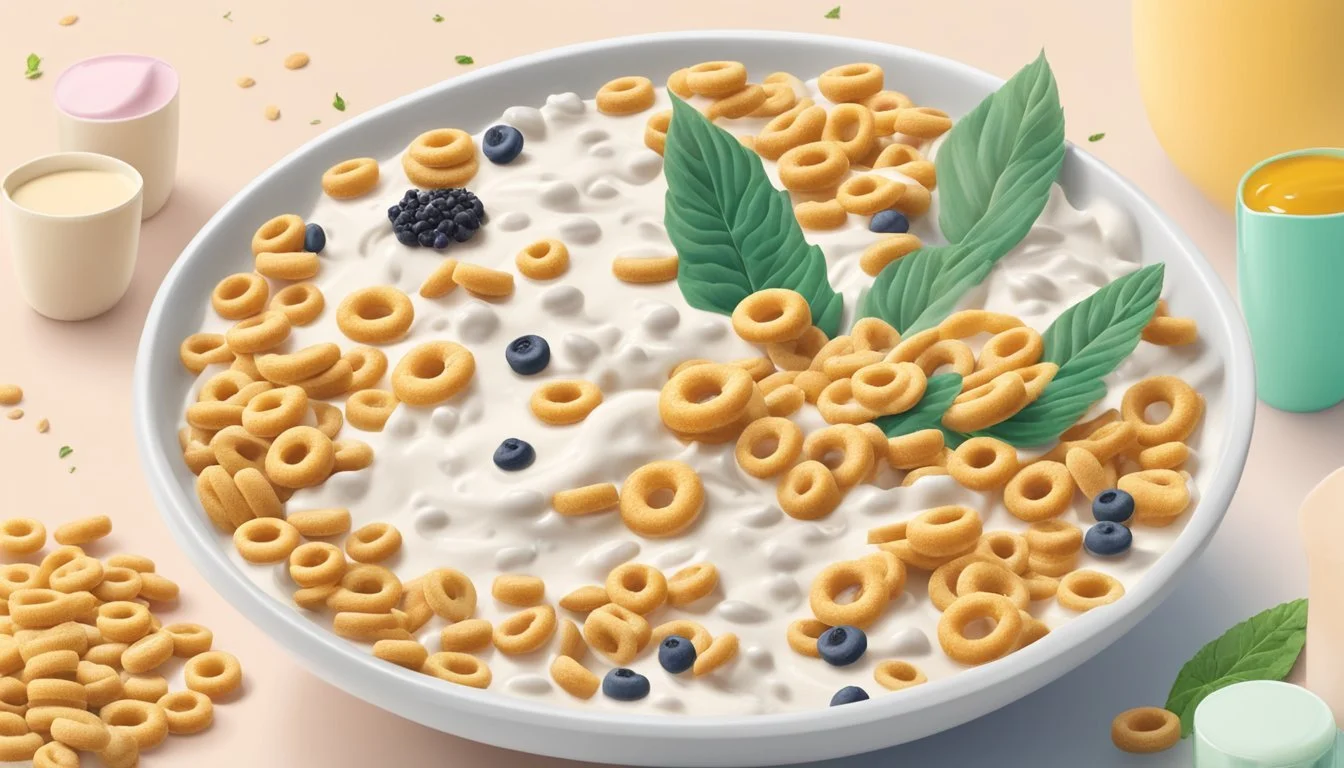Are Cheerios Vegan?
Understanding Their Ingredients and Suitability
When assessing if a product is vegan, it's key to consider all ingredients, including those used in fortification and processing. Cheerios, a popular breakfast cereal made primarily from whole grain oats, might initially seem vegan. However, they may not align with strict vegan diets. Some varieties of Cheerios contain white sugar, which can be processed with bone char, a non-vegan ingredient. Additionally, Honey Nut Cheerios includes honey, which is not considered vegan as it is an animal byproduct.
Furthermore, Cheerios are fortified with vitamins and minerals, including Vitamin D3, which is typically derived from lanolin found in sheep's wool. The presence of Vitamin D3 in some Cheerios varieties is a critical detail that those adhering to a vegan lifestyle must be aware of. Some variations of Cheerios that do not contain honey might otherwise appear vegan but still include Vitamin D3, rendering them unsuitable for vegans seeking to avoid all animal-derived products.
What Is Veganism?
Veganism is an approach to living that seeks to exclude all forms of exploitation of, and cruelty to, animals for food, clothing, or any other purpose. This lifestyle extends beyond dietary choices, encompassing a philosophy that rejects the commodity status of animals.
Defining Vegan
A vegan is someone who adheres to a diet free from animal products such as meat, dairy, eggs, and honey. This diet is based on plants and includes vegetables, grains, nuts, and fruits. Strict vegans also avoid non-food products made from animals like leather and wool. It's not just about food; it's a commitment to avoid products resulting from animal exploitation.
Lifestyle Vs. Dietary Veganism
Dietary Veganism:
Focuses solely on what they consume.
Excludes all animal products from their diet.
Vegan Lifestyle:
Encompasses more than just diet.
Extends the same principles to all aspects of life.
Avoids contributing to animal exploitation in any form, including clothing, entertainment, or products tested on animals.
A vegan diet is rich in vegan food that does not originate from animals, whereas a vegan lifestyle implies a broader commitment against exploitation and cruelty, advocating for the ethical treatment of animals in all areas of life.
Overview of Cheerios
Cheerios is a brand well-known for its wide variety of oat-based breakfast cereals. This section offers insight into the origins of the brand and the numerous varieties it offers.
Cheerios Origin
Cheerios, originally introduced in 1941 by General Mills, began as a simple oat cereal called CheeriOats. The brand quickly established itself as a staple in American breakfast culture, with its signature taste and texture coming from the use of whole grain oats. Renamed to Cheerios in 1945 due to a trademark dispute, the cereal has become synonymous with a nutritious and convenient breakfast option for both children and adults.
Cheerios Varieties
Over the years, the Cheerios brand has expanded beyond the Original Cheerios to cater to a range of taste preferences and nutritional needs. Here is a breakdown of some notable varieties:
Original Cheerios: Made with whole grain oats and fortified with vitamins and minerals.
Honey Nut Cheerios: A sweeter alternative, featuring the flavor of honey and almond.
Multigrain Cheerios: A blend of five whole grains providing a balanced nutrition profile.
Cheerios Oat Crunch: An offering that includes whole grain oats and a crunchy baked texture.
Flavored Cheerios: The brand has released numerous flavored options, including:
Apple Cinnamon Cheerios
Frosted Cheerios
Chocolate Cheerios
Fruity Cheerios
Cinnamon Cheerios
Blueberry Cheerios
Each variant provides a unique twist on the classic Cheerios experience, ranging from fruity to chocolatey flavors. This diversity in choices has enabled Cheerios to maintain its popularity as a cereal brand across generations while also appealing to a broad consumer base with different dietary preferences.
Key Ingredients in Cheerios
Cheerios offers a variety of breakfast cereals predominantly based on whole grain oats. However, certain ingredients may raise questions regarding its vegan status.
Common Ingredients
Whole Grain Oats: The primary ingredient providing fiber and nutrients.
Corn Starch: Used to improve texture and consistency.
Sugar: Sweetens the cereal; its source can be contentious for vegans if processed with bone char.
Salt: Enhances flavor and is present in small quantities.
Calcium Carbonate: A mineral that fortifies the cereal with additional calcium.
Iron and Zinc: Essential minerals included to meet nutritional needs.
Vitamins: A range of B vitamins such as vitamin B1 (Thiamin), vitamin B12, as well as vitamins A, C, D, and E.
Mixed Tocopherols: Added to maintain freshness, derived from vitamin E.
Controversial Ingredients
Vitamin D3: Often derived from lanolin (sheep's wool), making it non-vegan.
Honey: Used in Honey Nut Cheerios and other variants; an animal byproduct.
Sugar: Refinement sometimes involves bone char, which is not vegan.
Vitamin E: Sourced from mixed tocopherols, which could be from various origins, some may not be vegan.
The listed vitamins and minerals, such as sodium and vitamin C, contribute to the nutritional profile, while ingredients like brown sugar syrup and corn syrup add different flavor dimensions to certain variations of Cheerios. The precise formulation can vary between flavors, with some ingredients raising concerns for those following a strict vegan diet.
Identifying Vegan-Friendly Products
When determining if a product is vegan-friendly, consumers should look for certifications and perform a thorough ingredient analysis to ensure all components are plant-based.
Vegan Certification
Vegan certification is a reliable indicator of whether a product meets strict vegan standards. Organizations such as the Vegan Society and Vegan Action offer certification labels after verifying that a product, including its production process, is free from animal-derived ingredients. When present, these logos serve as a quick reference for consumers to trust the vegan integrity of a product.
Ingredient Analysis
A meticulous ingredient analysis is crucial for identifying vegan-friendly products. Products made from plant-based ingredients are typically suitable for vegan diets; however, hidden or less obvious non-vegan components can sometimes be present. For example, some plant-based foods may contain additives like Vitamin D3, often sourced from lanolin in sheep's wool, which is not considered vegan. A breakdown of such ingredients often found in cereals like Cheerios can be shown as:
Whole Grain Oats: Vegan.
Corn Starch: Vegan.
Sugar: May not be vegan due to processing methods involving bone char.
Honey: Not vegan, as it is derived from bees.
Vitamin D3: Often not vegan, commonly derived from animal sources.
Identifying vegan ingredients requires careful examination of each element listed on a product's packaging. Foods explicitly labeled as "Vegan" or "Plant-Based" are typically safe choices, but it is always advisable to verify the components, especially additives and fortifications like vitamins and minerals which may have animal origins.
Vitamin D in Food Products
Vitamin D is a crucial nutrient for maintaining bone health and supporting immune system function. There are different types of this vitamin, and their sources vary with implications for those following a vegan diet.
Vitamin D Types
Vitamin D comes in two primary forms: Vitamin D2 (ergocalciferol) and Vitamin D3 (cholecalciferol). Vitamin D2 is typically obtained from plant sources and UV-exposed mushrooms, while Vitamin D3 is usually derived from animal sources, particularly lanolin, a substance extracted from sheep's wool. Vitamin D3 can also be sourced from lichen, which is plant-based, though this is less common in food products.
Plant-Based Vitamin D Sources
For individuals seeking plant-based sources of Vitamin D, the following are notable:
Mushrooms: Exposed to sunlight or UV light, mushrooms can provide Vitamin D2.
Fortified foods: Some plant milks and breakfast cereals are fortified with vitamin D2 or vegan-friendly vitamin D3 from lichen.
When assessing food products for vegan suitability, it is essential to consider the type of Vitamin D used in fortification. Vitamin D3, when not explicitly sourced from lichen, is typically non-vegan, making products containing it unsuitable for vegans.
Are Cheerios Vegan?
When determining whether Cheerios are suitable for a vegan diet, one must consider each flavor's ingredients, as some may contain animal-derived components while others do not.
Original Cheerios Vegan Status
Original Cheerios are predominantly made from whole grain oats. They are considered to be vegan-friendly because they do not contain honey, dairy, or other animal-derived ingredients. However, it's important to note that they are fortified with vitamins and minerals, including Vitamin D3, which can sometimes be derived from lanolin (sheep wool). Not all vegans may be comfortable with Vitamin D3, so it's essential to check the source of the vitamin.
Honey Nut and Other Flavors
Regarding Honey Nut Cheerios and various other flavors, most contain non-vegan ingredients. Honey Nut Cheerios, as the name suggests, include honey, which is not a vegan-friendly ingredient since it is produced by bees. Other flavors might also contain additives or vitamins sourced from animals. It’s crucial for vegans to read the ingredient label thoroughly to identify any non-vegan substances, especially if the product includes sugar processed with bone char or Vitamin D3.
To summarize, while Original Cheerios might be acceptable for some vegans, Honey Nut Cheerios and several other flavored Cheerios are not vegan due to ingredients like honey and potentially animal-derived Vitamin D3.
Sugar and Animal Exploitation
When considering whether a product is vegan, the sugar refining process plays a crucial role, particularly due to the use of animal-derived bone char in traditional methods.
Refining Process
Refined sugar, especially white sugar, typically undergoes a process aimed at removing impurities and achieving its pristine color. Refining often involves the application of granular carbon, which can be derived from various sources, one of which is animal bones, commonly known as bone char.
Bone Char and Alternatives
Bone char is produced by charring animal bones at high temperatures, resulting in a porous material well-suited for filtering sugar by adsorbing colorants. However, the vegan community outright rejects its use, advocating for alternatives such as activated charcoal from non-animal sources or ion-exchange systems which do not involve animal products, thereby maintaining the integrity of a vegan lifestyle.
Honey and Veganism
In the context of veganism, honey is often debated due to its animal-derived nature and the ethics concerning bee exploitation.
Why Honey Is Controversial
Honey is a natural product made by bees, typically seen as non-vegan because it involves the use of an animal byproduct. Vegans avoid honey to stay consistent with their ethical commitment to not exploit or harm animals for human consumption. Bees produce honey for their own use, not for humans, and the harvesting of honey involves human interference in bees' natural processes.
Bee Exploitation
Bee exploitation refers to the practices that may harm bee colonies and disrupt their natural life cycles. Commercial beekeeping often involves practices like queen bee clipping, the killing of drones, or substituting bees' honey with lower-quality sugar syrups, which are not aligned with vegan principles. Vegans argue that these practices are exploitative and do not respect the intrinsic value of bees as sentient beings.
Sustainable and Ethical Eating
In the pursuit of a diet that is both ethical and environmentally conscious, many individuals are turning towards sustainable, plant-based foods. This section examines how consumers can participate in ethical eating by choosing vegan foods and avoiding products that result from animal exploitation.
Choosing Plant-Based
Plant-based diets focus on foods derived from plants, including fruits, vegetables, legumes, grains, and nuts. These foods are core to a vegan lifestyle and offer a range of health benefits. A diet rich in plant-based foods typically has lower levels of saturated fat and cholesterol, which can contribute to better heart health. Additionally, plant-based foods are often high in fiber and essential nutrients.
Health Benefits of Plant-Based Foods:
Lower cholesterol levels
Reduced risk of heart disease
High in dietary fiber
Rich in vitamins and minerals
Seeking out vegan options can also stimulate the market demand for such products, encouraging producers to develop more ethical and health-conscious foods. However, the mere label of "plant-based" does not automatically equate to healthfulness. Processed vegan foods can still be high in added sugars and sodium, therefore, whole foods are preferred where possible.
Avoiding Animal Exploitation
Central to veganism is the avoidance of animal products or byproducts that entail animal exploitation. Consuming animal products contributes to industries where animals are often kept in poor living conditions and are subjected to inhumane treatment. Ethical eating involves making conscious choices to abstain from products that are derived from animals, which includes meat, dairy, eggs, and also non-food items such as leather and wool.
Examples of Animal Exploitation:
Factory farming
Animal testing
Wildlife poaching
By avoiding these products, individuals reduce their complicity in industries that exploit animals. Veganism goes beyond diet and encompasses a philosophy of minimizing harm to all sentient beings. As such, individuals choosing a vegan diet often extend this principle to other areas of consumption, opting for cruelty-free cosmetics and clothing made without animal materials.
Cheerios As Part of a Vegan Diet
When considering Cheerios for a vegan diet, one must assess the ingredients and fortification process, particularly the presence of Vitamin D3 from non-vegan sources and honey in some variations.
Incorporating Cheerios
Cheerios can be a part of a vegan breakfast when selecting the right variety, as some flavors may contain non-vegan ingredients such as honey. The main ingredient, whole grain oats, is vegan-friendly, providing dietary fiber and iron. Vegans can incorporate Cheerios by checking labels and seeking out options that do not contain animal-derived additives. When included in a vegan diet, Cheerios should be accompanied by other nutrient-dense foods to ensure a balanced intake.
Vegan-Friendly Varieties: Multi-Grain Cheerios*
Ingredients to Avoid: Honey, Vitamin D3 (if sourced from lanolin)
*Always verify the label as formulations may change.
Alternative Breakfast Options
For those seeking entirely plant-based breakfast cereals, a variety of alternatives to Cheerios are available. These options are often rich in fiber, iron, and are free from animal-based fortification.
Vegan Cereal Options:
Rice Krispies*
Wheaties*
Kashi Organic Whole Wheat Biscuits
*Always verify the label as formulations may change.
When making a breakfast bowl, vegans can top these cereals with plant-based milk, such as almond or soy, and add fruits like bananas and berries to enhance the meal’s nutritional profile. Not only do these options provide healthy sustenance, but they can also be part of delightful vegan recipes for snacks or quick meals.
Controversies and Considerations
In the debate over whether Cheerios are vegan, key controversies revolve around specific ingredients and the positions of consumer advocacy groups. These complexities merit closer scrutiny.
Debate on Vegan Suitability
Controversial Ingredients: The central point of contention is the inclusion of vitamin D3 in Original Cheerios, which is often sourced from lanolin (sheep's wool) or fish liver oil. The presence of D3 from animal sources disqualifies the product from being labeled strictly vegan. Moreover, some flavors, like Honey Nut Cheerios, contain honey - another non-vegan component due to its origin as an animal byproduct.
Plant-Based Perspective: While the main ingredients of Cheerios, such as whole grain oats, cornstarch, and sugar, are plant-based, the inclusion of any non-vegan ingredients like D3 or honey calls into question the vegan status of the product.
Consumer Advocacy Groups Stance
Groups like PETA: Bodies that advocate for veganism and animal rights often investigate the source of ingredients in food products. Organizations such as PETA (People for the Ethical Treatment of Animals) might not endorse products like Cheerios, considering controversial ingredients that do not align with a strict vegan philosophy.
In summary, the suitability of Cheerios as a vegan product is disputed due to certain ingredients that are animal-derived. The stance from advocacy groups adds another layer to the conversation, influencing consumer perception and choices.
Conclusion
When assessing the vegan status of Cheerios, consumers need to consider individual ingredients in each variety. Original Cheerios are generally considered vegan, as they primarily consist of whole grain oats. However, certain varieties, such as Honey Nut Cheerios, include honey and are therefore not vegan.
Other considerations include:
Vitamin D3: Often sourced from lanolin (sheep's wool), making some Cheerios non-vegan.
Sugar: May be processed with bone char, a concern for some vegans.
Additionally, cross-contamination can occur during manufacturing, which may concern those following a strict vegan diet.
In conclusion, individuals seeking to maintain a vegan diet should scrutinize the ingredients and production methods of each Cheerios variety before consumption.

